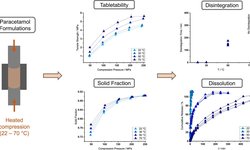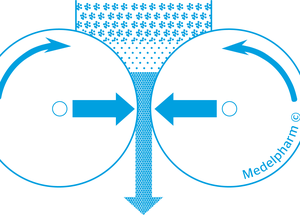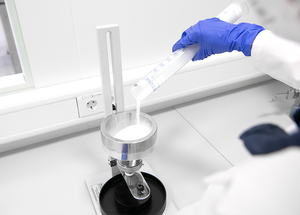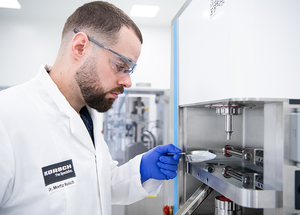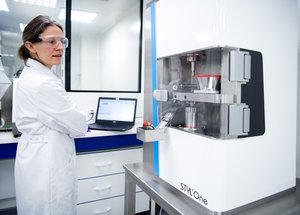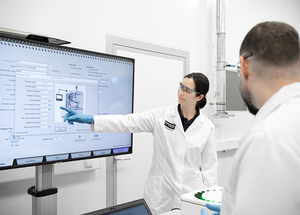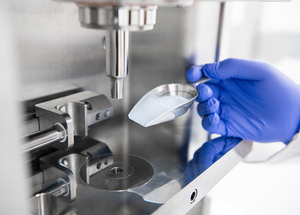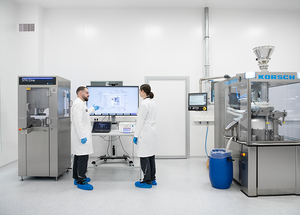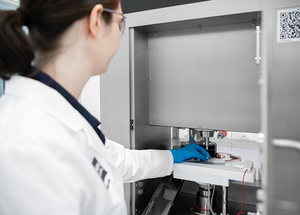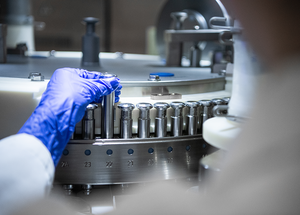Scientific papers
Capping, a significant issue in pharmaceutical tablet manufacturing, involves the detachment of one of the tablet's convex portions during ejection from the press or after relaxation. Currently, solutions to this problem are predominantly empirical, with precompression being a widely employed approach.
A prevalent explanation for the effectiveness of precompression in mitigating capping is its extension of the total time under compression. Consequently, press manufacturers have developed devices or machines to sustain pressure between precompression and main compression.
This note presents a case study on capping, focusing on a proposed formulation. Interestingly, maintaining precompression until the main compression yielded similar results to having no precompression at all, resulting in capping for all tablets. Conversely, when precompression was released before the main compression, capping ceased entirely. In this scenario, the efficacy of precompression arises from the separation of two compression events, emphasizing that this separation must endure for a sufficient duration for precompression to be effective. This example underscores the complexity of the impact of precompression, challenging the simplistic descriptions often found in the literature.
Comments
No comments posted yet.
Add a comment


